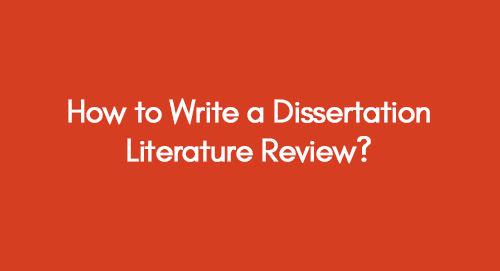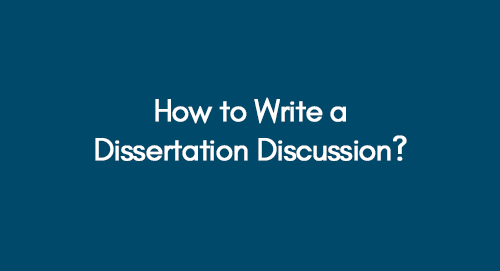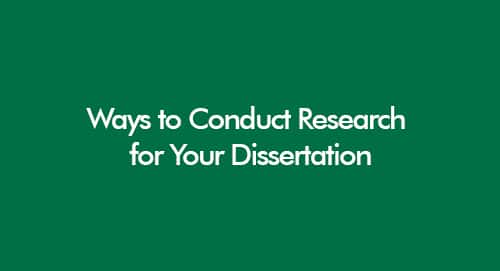
To Investigate Whether Tourism is a Vehicle for Women’s Empowerment” Case Study: Colombia”
August 9, 2022
How to Write a Dissertation Literature Review?| Steps
August 15, 2022People collaborate to address unresolved problems or disagreements to uncover genuine truths. Dialogue aims for unanimous agreement and unbiased truth-seeking, requiring effective planning within a limited time.
Learn More about Discussion in the Dissertation Here
One of the benefits of discussion is that it reduces the moment of subjectivity. Conversely, it necessarily promotes a better understanding of opponents if it does not result in universal agreement.
Manuscript discussion is challenging as it explains research significance and meaning, answering, "What do my results mean?" It follows methodology and results, situating findings in the context of introduction questions and relevant literature.
Find out why a Dissertation Discussion is Important.
Dissertation discussions convey your perspective, answer research questions, and enrich your field's literature. The structure follows findings, aligning with themes or questions for clarity. UK universities assess each research question separately. Sections comprise an introduction, result summary, and conclusion. Learn the step-by-step process of creating a powerful dissertation discussion in our guide on 'how to write a dissertation discussion' that will make your research findings shine.
What are the Ingredients of a Dissertation Discussion?
The dissertation discussion chapter demonstrates your abilities to describe and analyze the results of your research.
Using your research findings, demonstrate how you answered the research questions established or tested the hypothesis. The dissertation analysis and discussion chapter lay the foundation for your overall conclusion. The results must be discussed in a precise manner.
To ensure you stay on track when writing your dissertation discussion chapter, here are the main elements of this section:
- Interpretations: Why are your findings significant?
- Implications: In what way would your findings benefit academic and scientific communities?
- Limitations: Do your results have any implications in certain situations?
- Future Recommendations: Recommendations to other researchers and scientists who explore this topic further in the future.
Dissertation discussion aligns results with research aims. Discussion and conclusion might overlap. They can be a single chapter, as per your university. Results and discussion can combine as a "Results and Discussion" chapter, explained further ahead.
In What Ways does the Discussion Overlap with Other Sections of the Thesis?
Several of the points discussed in the thesis discussion section overlap with those in the results section - the results section presents the data, and the discussion section explains it. Research types (qualitative vs. quantitative) differ in how the discussion section is structured. It is common for discussion and results in sections to be merged in qualitative research, such as in Humanities and Social Sciences (HSS). The sciences domain typically separates these sections in thesis studies involving quantitative research.
Discussion sections in theses also overlap with conclusions; the discussion sections present detailed analyses and interpretations of the data; the conclusion sections summarize the main conclusions. Some fields of study may also combine the discussion and conclusion sections.
Pro Tip: Consult your supervisor and check your academic institution's requirements if you are unsure of which structure to use.
What are the Steps of Writing a Dissertation Discussion?
1: Analyze Your Findings and Provide a Summary
Provide an overview of the key findings of your research questions at the beginning of your discussion. Repetition of previous chapters' information is not recommended.
You will be required to interpret the results in one or two paragraphs to address the original research questions. You can present your findings in a few different ways:
Examples:
- Result confirms that",
- Analyses indicate that",
- According to the data,
- As a result of the research, it was found that, etc.
2: Analysis of Results and Interpretations
While the results might seem obvious to you, your audience will expect you to explain them. Readers should be able to understand the value of your research by clearly linking the results and interpretations to your research questions.
Depending on the type of research, you will choose a different method for interpreting the data. Among the most common strategies are;
- Explanation of how and why you arrived at unexpected conclusions and their significance
- Analyzing previous studies and relating your findings to them
- If any alternative explanations are suggested, explain your position with logical arguments
- A detailed discussion of whether the findings answered your research questions and/or supported your hypothesis
The Discussion chapter can begin with the following examples:
- According to this study, the findings contradict those of Sara et al., (1997).
- According to these findings, A is..... despite the findings of Sara et al., (1997) and Mike (1995)."
3: The Implications of Your Study
Does your study have any practical or theoretical implications for other researchers?
The reader must be able to discern how your research will contribute to existing knowledge by relating your results to the existing literature. In order to determine the potential consequences of your findings, you should ask yourself the following questions:
- How does your research contribute to previous studies? Is it in line with previous findings?
- Is there a reason why your results are so different from those of other studies on the same topic?
- Are your findings in agreement with or in conflict with existing knowledge?
- In what ways does your study have practical implications?
If you want to make a contribution to the existing literature, then you should briefly describe how your study will do this.
Examples:
- The results do not match the theoretical perspectives",
- This study's findings need to be taken into account in future studies, since"
4: Acknowledge Your Research Limitations
Acknowledging limitations in your research will strengthen your credibility as a scientist.
Other factors, such as unexpected research obstacles, methodological decisions, and the overall research design, may have influenced your study's results, in addition to the possible human errors.
Be careful not to mention limitations that are irrelevant to your research purpose, but clearly state those that may have impacted your findings.
A tiny population sample size, for example, may not allow you to generalize your findings.
Research limitations can also affect your results. Explain to the reader why the findings of your study are still valid despite these obstacles.
Examples
- A small sample size limited the generalization of the findings.
- Results may not be as authentic as they seem because of...
- Data collection obstacles led to...
- This research is beyond its scope...
5: Future Research Recommendations
Research limitations directly affect recommendations for future research, however, other researchers can build on these recommendations by including the areas you could not report in your research work.
The recommendations are sometimes included in the conclusion chapter.
Tips and Tricks for Writing Powerful Discussions
Many students find this part of their dissertation tough. Here, they must show strong analytical, critical thinking skills, and prove their research adds to their field. These tips will aid you in handling this tricky task, guiding you to write a convincing discussion section.
1. Analyze Step By Step
First, look at the findings broadly, then go into details. Connect them to past studies, a specific theory, and real-world practice if possible.
2. Match Introduction and Conclusion
Use the same words and style in both your introduction and conclusion.
3. Problem, Findings, Methods
Clearly state the problem you studied, discuss your main discoveries, and explain how you investigated them.
4. Connect Findings and Theories
Combine your results with existing theories. Find patterns, relationships, or surprising findings. Explain why unexpected things happened.
5. Compare and Contrast
Show how your results compare to previous research. Point out new things you found.
6. Be Honest About Limits
Talk about what your study couldn't cover. Think about how these gaps might affect your results.
7. Implications and Support
Explain what your findings mean and how they add to what we know.
8. Suggest Next Steps
Give ideas for future research. Be specific about what could be done to tackle what you couldn't cover.
FAQs about Dissertation Discussions
- An overview of your key findings
- Providing an answer to your thesis question
- Interpretation of your results
- Implications of the findings
- How the results are limited (i.e., what they cannot tell us)
- Application suggestions for your findings
- Recommendations for future research
- Results restated
- In the results section, all new results presented in the discussion section must be presented as well.
- Invalid speculations based on your data
- Thesis or hypothesis-related results that aren't directly related
- There is usually a section in the results section for tables and figures
Get 3+ Free Dissertation Topics within 24 hours?



























